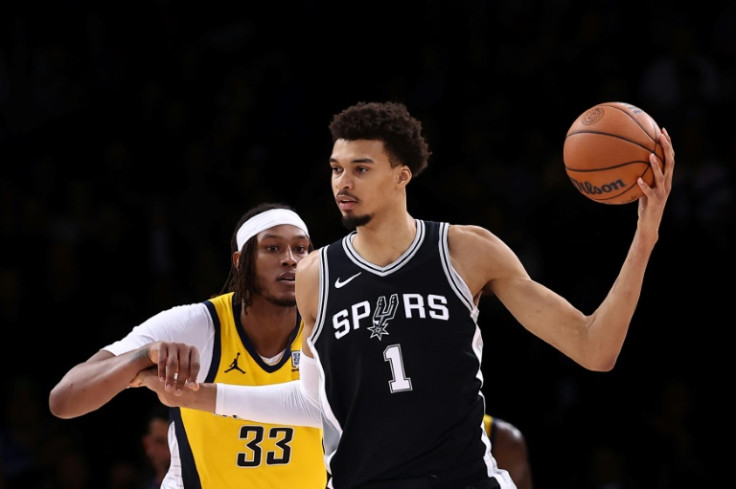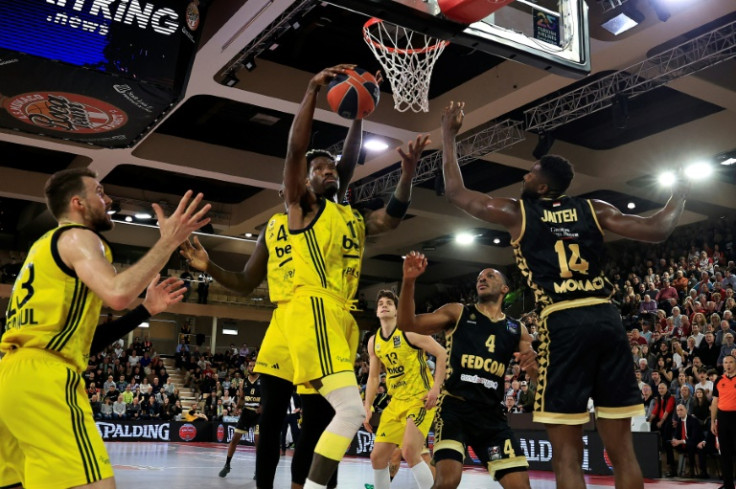Why Is The NBA Eyeing Europe?

The NBA has said it is "exploring" the creation of a professional basketball league in Europe, but the plans remain vague and raise many questions.
The first is why is the powerful US league taking this step? How does it intend to make money? And is the EuroLeague, the home of Europe's best clubs, doomed to a marriage of convenience?
For several years now, the NBA has wanted to plant its flag on European soil and go beyond the annual pre-season or regular season game held in Europe for the past four decades.
"Had discussions around potential opportunities in Europe literally for decades... We're ready to go to the next stage and that's to explore a potential league in Europe with FIBA as our partners," NBA commissioner Adam Silver said last month.
The NBA has already quenched its thirst for expansion by creating a women's league, the WNBA, the 'development' G-League in the US and the Basketball Africa League.
Backed by record television rights receipts worth around $76 billion (69.6 billion euros) from 2025 to 2036, it now seems ready to take the plunge in Europe.
The move might have been precipitated by reports that investors advised by LeBron James' former manager Maverick Carter are attempting to create a league consisting of six men's teams and six women's teams playing games around the world, according to Patrick Rishe, Director of the Sports Business programme at Washington University in St. Louis.
"The (NBA's) primary motivation is to just simply further globalise their sport. They've done a great job of doing that over the decades," he said.
Rick Burton, professor of Sport Management at Syracuse University, said the attraction to the NBA of European cities like Paris, Berlin, London and Munich was clear.
"You could see a day where some of the smaller US cities might conceivably be replaced by much bigger global cities but you've got to get there slowly. You can't do it overnight.
"So I think that this is maybe just the start and it's something that they've probably been thinking about for years."
The major European cities represent a colossal potential market for the NBA.
Although the EuroLeague, Europe's premier competition, is attracting ever-increasing numbers of spectators (an average of 10,383 per game in 2023-2024), "all its clubs are losing money", according to Philippe Ausseur, President of the French National Basketball League (LNB).
The NBA estimates, according to several reports, that it could earn three billion euros a year profit in the long term, adding in the Middle East, another identified growth area.
How would it do that when the world's best players will always play on the other side of the Atlantic?
"The marketing power of the NBA remains incomparable," said Ausseur, suggesting it could "contribute enormously in terms of commercial partnerships".
The EuroLeague's only major sponsors this season are Turkish Airlines and Indian tyre maker BKT.
The EuroLeague has failed to attract major broadcasters and to secure significant TV rights, something that would also represent a genuine challenge for the NBA.
"It's easy to find a broadcaster in the USA, but in Europe you have to find seven to 10, with different arrangements in different countries," Ausseur said.
The NBA has said it wants to work with Europe's major sports clubs.
Real Madrid and Fenerbahce in Turkey already have successful basketball teams to go with their football clubs, but the other clubs reportedly approached do not. Manchester City, Arsenal and Paris Saint-Germain, who have acknowledged they have been approached and have expressed interest, would be starting from scratch.
"It's rather the NBA's tropism: they see that the big sports brands in Europe are soccer brands. But in basketball, there's only Real, Barca and, to a lesser extent, Bayern," Ausseur said, pointing out that domestic basketball "hadn't made any inroads on the (British) market". The London Lions' ambitious project has fizzled out, and the British league is in serious financial difficulties.
The EuroLeague is threatened by the NBA's project, which it is devising with its rival, the international federation FIBA.
The EuroLeague, a virtually closed private competition, was created in 2000 by the big clubs, who left FIBA's fold for financial reasons.
Can the NBA entice clubs to move the other way now?
In January, the 13 shareholder clubs renewed their partnership with marketing agency IMG until 2036. The EuroLeague told AFP not all had renewed their licence to participate in the competition and they have until June 2026 to do so. Could FIBA, EuroLeague and the NBA reach an agreement before then?
"I think it's the only way," EuroLeague boss Paulius Motiejunas told French sports daily L'Equipe, indicating that the NBA had first approached him in March 2024. Another meeting took place this March.
"There is still time for discussions to take place and for reason to prevail," said Ausseur.
He warned though that "everyone will lose out" if the NBA's move leads to a new, splinter competition alongside the others.

© Copyright AFP 2025. All rights reserved.





















